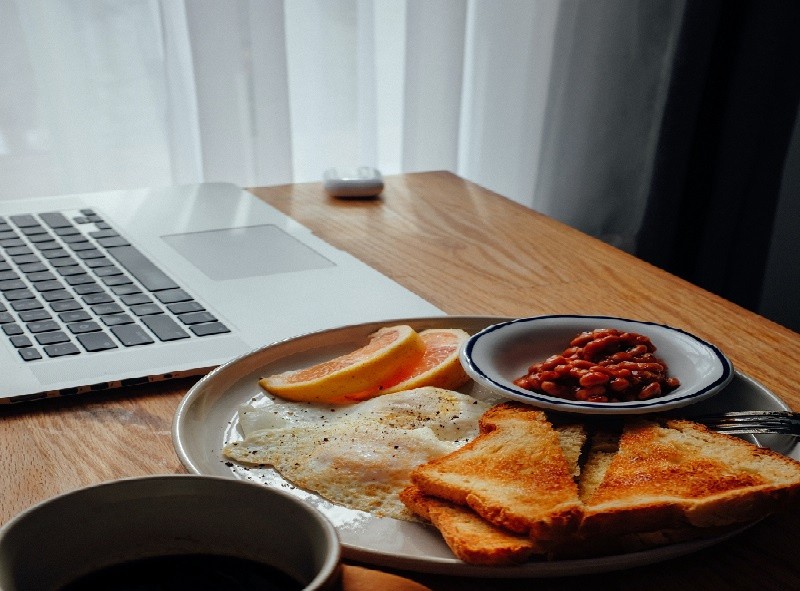Working from home is the new normal set for employees to continue contributing to their company amid the coronavirus pandemic.
Well, you might be comfortable working while wearing your pajamas. On the other hand, how do you ensure that you are in good health? Do you still have time to keep on the right track of your daily diet?
It may be easier to work under your own roof, but it's tough to have a healthy diet. While keeping yourself with the work-from-home setup, here are some simple tips that can help you stay healthy.

Plan your daily meals and snacks
Working from home would make it harder for you to give time for exercise. In a matter of days, your waistline will increase if you don't have plans. According to GoMedii, you must have a plan for the whole day and the meals you will eat before working. Do not mess up the routine you have when you are working in a physical office.
As per Beaumont, either trying to lose weight or improve diet, planning your meal is the natural step to reach your goals. Besides saving your waistline, you also improve your health by planning out your foods or even snacks.
Avoid going to the kitchen when working
First and foremost, your desktop should've been in the area where you can avoid destruction, and it includes the kitchen.
Being near the kitchen gives a lot of temptation to eat even if it is not time to eat. You will just make it a habit when you need a stress reliever to grab food in the refrigerator. So, stay away from the kitchen to stay healthy even when you are working from home.
Do not skip your meal when your body asks for it
Skeletal diet is a no, no. There may be times that you are loaded with tasks, and it will be hard for you to take a break and eat at the right time. However, not eating won't make you either thinner or healthy. Skipping meals when your body asks for it can affect your alertness and productivity.
According to Piedmont, being hungry for several hours may cause you to lower your blood sugar. Low blood sugar will cause you to be irritable, fatigued, and confused. As your blood sugar becomes weak, the cortisol increases, which will make you stressed and angry.
So if you need, set an alarm that will notify you when to get up and take a break and get something to eat. But make sure the food you will eat will help your brain function very well.
Drink plenty of water
As we all know, being hydrated is important. You are surely not exempt from this just because of the work-from-home setup. Besides, you have more access to being hydrated.
If you do not drink plenty of water, you may have headaches and fatigue, which will affect your performance. Just like in the physical office, keep a bottle full of water beside your working area to always be reminded to drink water.
Do not take too much caffeine
Coffee seemed to be the energy booster of most office workers. But having too much coffee while working from home is not advisable.
The excess consumption of caffeine could lead to anxiety, fatigue, headaches, and digestive issues. Neither are good effects, especially when you are on duty.
The study of PubMed shows that high doses of caffeine may have dangerous side effects. Research shows that genes may have something to do with your tolerance for caffeine. Some people have a higher tolerance for caffeine than others.
To prevent the adverse effects of too much coffee, make sure you won't drink more than two cups. Besides, you must avoid flavored and high-calorie add-ins like creamers that would affect your weight and health.
Don't buy junk food
One reason you may be tempted to eat unhealthy foods is storing junk foods and making your cabinets like vending machines. As much as possible, keep junk food out of your access, particularly your house.
In that way, you will be sure that whatever cravings on the unhealthy foods you have, you won't have a chance to eat it. Keeping unhealthy snacks out of your sight would also keep it out of your mind.
The most common unhealthy snacks are those foods which are highly-processed like fast foods, and junk foods, as per the American Heart Association. These foods are low in nutrients and high on empty calories because of the refined sugar, sodium, and flours it had.
Check these out:
What COVID-19 Patients Should Eat and Avoid for Fast Recovery
7 Best Baby Food Delivery Services and Subscriptions
Breast Cancer Diet: Foods to Eat and to Avoid



